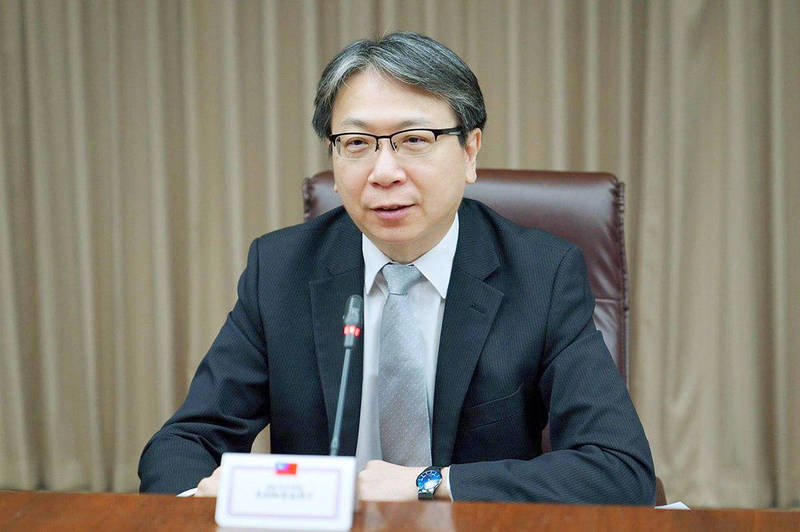《TAIPEI TIMES》 Chinese infiltration at top of security bureau agenda

Then-National Security Council deputy secretary-general Tsai Ming-yen is pictured in Taipei in May 2020. Photo courtesy of the Ministry of Foreign Affairs via CNA
DETECTING BREACHES: Capacity should be bolstered to combat Beijing’s efforts to infiltrate government, military and civil society bodies, Taipei’s security director said
By Jonathan Chin / Staff writer
Enhancing international security cooperation and combating Chinese infiltration are among the highlights of a policy outline that National Security Bureau Director-General Tsai Ming-yen released (蔡明彥) yesterday.
Tsai released the policy outline on the bureau’s Web site three days after taking the reins of the nation’s principal intelligence agency.
China’s heightened military activities around Taiwan last year were aimed at destabilizing the region and forcing changes to the “status quo,” said Tsai, who was formerly a deputy minister of foreign affairs.
Taiwan must counter these efforts by improving strategic communications with friendly states and deepening integration with the international community, Tsai said.
The bureau’s role is to share information and cooperate with foreign intelligence agencies to protect national security and facilitate the nation’s diplomatic endeavors, he said.
The bureau must improve its intelligence and analytic capabilities regarding China to provide the government with reliable policymaking information and to predict when dangers might arise, Tsai said.
Taiwan’s counterintelligence abilities, especially in detection of security breaches, should be bolstered to combat Beijing’s efforts to infiltrate government, military and civil society bodies, he said.
The bureau is continuing efforts to integrate national security resources to counter China’s cognitive warfare, Tsai said, adding that the government is ensuring that freedom of speech and national laws are protected in the process.
The security and integrity of national elections must also be protected by planning for possible outside interference and arranging for the personal security of candidates, he added.
The bureau is to oversee efforts to integrate technology into its intelligence and counterintelligence capabilities, and supervise the creation of a zero-trust security architecture, Tsai said.
Data networks must be bolstered against attacks with the addition of mobile backup sites, system recovery mechanisms and uninterrupted encryption services, he said.
A national security system should continuously monitor for threats that are logged on a database with the capability of filtering, analyzing and tracking risk factors, he added.
Information derived from such a source should be shared with law enforcement to enact preventive measures before threats are realized, he said.
新聞來源:TAIPEI TIMES











